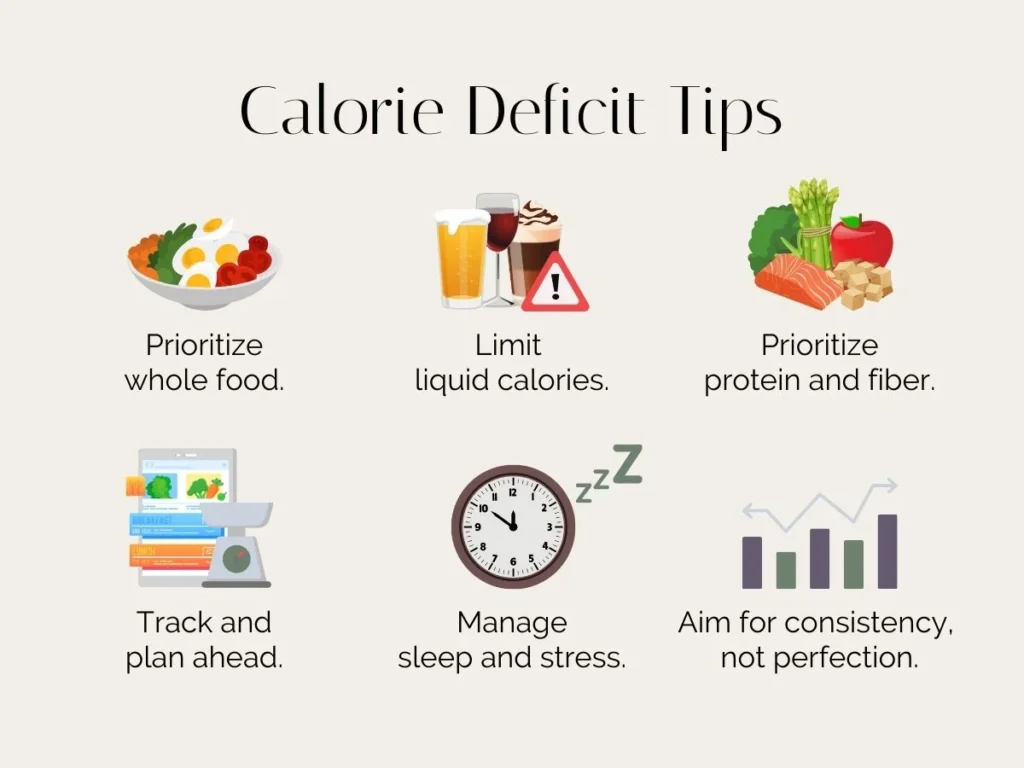Healthy Lifestyle and Weight Management: Maintaining a healthy lifestyle often revolves around effective weight management, which can be greatly influenced by calorie reduction. Nourishing your body while understanding how to create a calorie deficit can lead to sustainable weight loss and improved overall health. In this article, we will explore effective strategies for losing calories and achieving a balanced lifestyle.
Understanding calorie loss:
Calories are units of energy derived from the food we consume. For our bodies to function optimally, we need a certain number of calories to maintain daily activities including metabolic processes, physical activity and even rest functions. When you consume more calories than your body needs, the excess is stored as fat, which leads to weight gain. Conversely, creating a calorie deficit—where you burn more calories than you consume—can facilitate weight loss.
Importance of calorie deficit:

Creating a calorie deficit is crucial for weight loss. To achieve this, you need to either consume fewer calories or increase your physical activity to burn more. A safe and sustainable weight loss goal is about 1 to 2 pounds per week, which usually requires a deficit of 500 to 1,000 calories per day. However, it’s essential to make sure you’re still meeting your nutritional needs when trying to lose weight.
Effective techniques for losing calories:
- Eat a balanced diet:
A balanced diet is the foundation of a healthy lifestyle. Focus on whole, nutrient-dense foods like fruits, vegetables, lean protein, whole grains and healthy fats. These foods not only provide essential nutrients but also help you feel fuller longer, reducing the temptation to overeat. Additionally, watching portion sizes can significantly contribute to calorie control without feeling deprived. - Include physical activity:
Regular physical activity is one of the most effective ways to increase calorie loss. Aim for 150 minutes of moderate aerobic exercise such as brisk walking or cycling per week combined with two or more days of strength training exercise. Engaging in activities you enjoy makes it easier to stay consistent and can help you burn more calories efficiently. - Stay hydrated:
Drinking enough water is essential for overall health and can help with weight control. Sometimes, our bodies confuse thirst with hunger, leading to unnecessary calorie consumption. Drinking water before meals can also help reduce calorie intake by promoting feelings of fullness. If you’re physically active, aim to drink at least 8 cups (64 ounces) of water a day or more. - Get enough sleep:
Quality sleep is often overlooked but vital to weight management. Lack of sleep can disrupt hormones that regulate appetite, leading to increased hunger and cravings for high-calorie foods. Aim for 7 to 9 hours of quality sleep per night to support your weight loss goals and overall health. - Mindful eating:
Mindful eating involves paying attention to your hunger cues and savoring each bite. This habit can help you enjoy your food more and prevent overeating. Eliminate distractions during meals, such as screens, and focus on the taste and texture of your food. By listening to your body, you can make healthier choices and be more aware of your eating habits.
Maintaining a healthy lifestyle:

- Set realistic goals:
Setting achievable weight loss goals is crucial for long-term success. Instead of a drastic weight loss goal, focus on making small, sustainable changes to your diet and exercise routine. Setting short-term goals can keep you motivated and help you track your progress more effectively. - Be consistent:
Consistency is the key to successful weight management. It’s not just about changing for a few weeks; Adopting healthy habits as part of your lifestyle will yield the best results. Even small changes, like taking the stairs instead of the elevator or going for a walk at lunch, can add up over time. - Seek support:
Having a support system can significantly impact your weight loss journey. Share your goals with friends or family members who can encourage you and help keep you accountable. Alternatively, consider joining a weight loss group or working with a registered dietitian to get professional guidance tailored to your needs.
A healthy lifestyle and effective weight management require a comprehensive approach to losing calories that combines a balanced diet, physical activity, hydration, quality sleep and mindful eating. By making gradual changes and setting realistic goals, you can create a sustainable path to achieving and maintaining a healthy weight.
Read Also: A Complete Guide to Wellness and Mind-Body Harmony
![]()






3 thoughts on “Healthy Lifestyle and Weight Management”